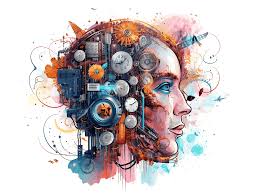Artificial Intelligence (AI) is revolutionizing various industries, enhancing productivity, efficiency, and decision-making processes. As AI technology continues to advance, it is reshaping the landscape of the job market. In this article, we will explore the impact of AI on the top five professions that are expected to undergo significant changes in the coming years.
1. Manufacturing and Production Workers
Automation driven by AI has already transformed the manufacturing sector, and this trend is expected to accelerate. Traditional assembly line jobs are being replaced by robots and smart machines capable of performing repetitive tasks with precision and efficiency. While this leads to increased productivity, it also results in reduced demand for human labor in routine manufacturing roles. To stay relevant, workers in this field need to upskill and adapt to new roles that require human judgment, problem-solving, and creativity.
2. Transportation and Delivery Drivers
The rise of autonomous vehicles and AI-powered logistics systems is set to disrupt the transportation and delivery industry. Self-driving cars and trucks have the potential to revolutionize the way goods are transported, reducing costs and increasing efficiency. However, this transformation will likely impact the millions of drivers who currently make a living through transportation services. While some drivers may transition to supervisory or maintenance roles for autonomous vehicles, others will need to explore alternative career paths that leverage their skills in customer service, problem-solving, and adaptability.
3. Customer Service Representatives
AI-powered chatbots and virtual assistants are becoming increasingly sophisticated, capable of handling customer inquiries and providing basic support. As a result, the role of customer service representatives is evolving. Routine queries can now be addressed by AI, freeing up human representatives to focus on complex and personalized interactions. Customer service professionals need to develop expertise in managing AI systems and embrace roles that require empathy, critical thinking, and the ability to build strong customer relationships.
4. Financial Analysts
AI has the potential to revolutionize the financial industry by automating data analysis, risk assessment, and investment strategies. Machine learning algorithms can quickly process vast amounts of financial data and identify patterns and trends that may elude human analysts. While AI can enhance the accuracy and efficiency of financial analysis, it may reduce the demand for traditional financial analysts who primarily perform repetitive tasks. Future financial analysts will need to augment their skills with AI literacy, focusing on higher-level analysis, strategic decision-making, and providing personalized financial advice.
5. Healthcare Professionals
The healthcare industry stands to benefit significantly from AI advancements, as they have the potential to improve diagnostics, treatment plans, and patient care. AI-powered systems can analyze medical data, assist in diagnosis, and predict disease outcomes. However, these advancements may also impact certain healthcare professions. For example, radiologists may see their roles evolve as AI algorithms become increasingly adept at analyzing medical images. Nevertheless, healthcare professionals can leverage AI as a tool to enhance their decision-making processes, collaborate with AI systems, and focus on patient-centered care.
Conclusion
As AI technology continues to advance, it will undoubtedly have a profound impact on various professions. While some job roles may be replaced or transformed, AI also presents new opportunities for professionals to upskill, adapt, and thrive in a changing work environment. It is crucial for individuals to stay proactive, embrace lifelong learning, and develop skills that complement AI technology. By doing so, professionals can position themselves for success in the AI-powered workforce of the future.



